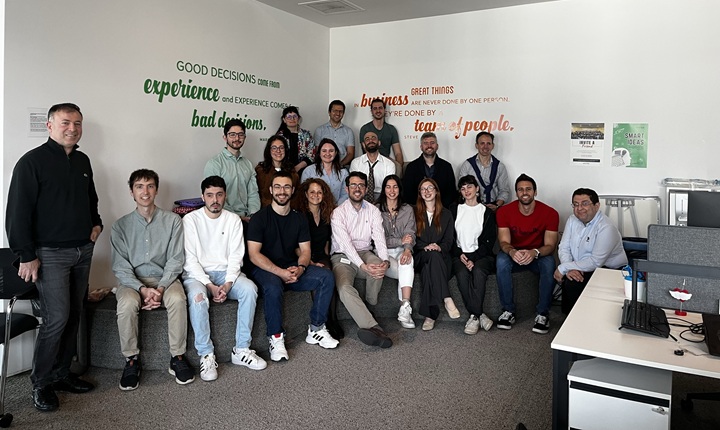TrustED advances in self-sovereign identity development and enhances European digital privacy

Gradiant coordinates this European alliance and leads the development of technologies that ensure digital identity security and privacy
The 10 European partners of TRUSTED are meeting today and tomorrow in Istanbul to evaluate the first six months of work and define the roadmap for the next phases
The 10 European partners of TRUSTED (Enabling Trustworthy European Data Spaces through Self-Sovereign Identity and Privacy Preserving Technologies) are meeting in Istanbul for the first time in person since the project began, to assess the initial six months of progress and map out the path ahead. This European alliance, led by Gradiant, focuses on strengthening data protection protocols. The Spanish technology center plays a key role in developing technologies that ensure the security and privacy of digital identity, fostering an ecosystem that builds trust in data exchange.
Gradiant’s role involves the design and prototyping of self-sovereign identity mechanisms, as well as the design and development of technologies that preserve individual privacy during personal data exchanges within data spaces. TRUSTED is structured into three interrelated technological pillars: decentralized digital identity, privacy-enhancing technologies, and data spaces, with the aim of creating services that enhance security and trust in the digital environment.
“The goal is to reinforce security and privacy in data spaces to encourage their widespread adoption. On one hand, we are developing digital identity systems aligned with the new eIDAS v2 regulation, ensuring that personal data remains under the control of its rightful owners: the users themselves. On the other, we are exploring advanced privacy mechanisms that enable the secure exchange of sensitive data among data space participants, fully respecting privacy,” explains Jaime Loureiro Acuña, TRUSTED’s technical coordinator and Head of Advanced Data Security at Gradiant.
TRUSTED aims to establish a reliable and secure framework for accessing data spaces, enabling the creation of a trust-based ecosystem for the exchange of information and knowledge. This ecosystem is built through federated learning, a strategy that allows different organizations to collaborate on AI model training without compromising data privacy.
“Thanks to federated learning, we can train an artificial intelligence model using data from various entities, such as hospitals, without that data ever leaving their infrastructures. The challenge lies in finding the optimal balance between privacy, model accuracy, and the time required for training,” adds Loureiro.
With this meeting, TRUSTED takes a further step toward positioning itself as a reference in the research and development of digital identity technologies, contributing to the creation of a safer environment for confidential data exchange and the formation of federated learning networks. The TRUSTED consortium includes 10 entities from 5 countries, bringing together diverse perspectives and expertise to maximize market impact.
The Spanish partners in TRUSTED are Gradiant (project lead), Tree Technology, and Fundación Cibervoluntarios. Collaborating with them are: Infocert SPA and Cybersocial Lab from Italy; Fraunhofer, through its AISEC and ISST departments, from Germany; Promptly and the Hospitalar Universitario de Coimbra from Portugal; SESTEK from Turkey; and Fondazione Mondo Digitale (associated partner) from Italy.
With nearly €4 million in funding under the European Commission’s Horizon Europe program, TRUSTED brings together a multidisciplinary team of technology, privacy, and security experts working closely to achieve the project’s goals.
Digital Identity and Privacy in European Data Ecosystems
According to Eurostat, the statistical office of the European Union, in 2024, 70% of EU citizens interacted with online public sector services. The top users were in Denmark (99%), the Netherlands (96%), and both Finland and Sweden (95%). In Spain, the figure was 80%, nearly 15% above the European average. Additionally, Eurostat reports that 44% of Europeans used e-government platforms of member regions to seek information on services, laws, benefits, or similar.
In this context, advanced identity technologies like those being developed in the TRUSTED project aim to connect real-world needs with the broader European vision. As part of the project’s next steps, Gradiant will host a webinar in June focused on privacy and digital identity in European data spaces. This session targets tech companies and data privacy and identity experts, among others, to contribute to the development of secure solutions while promoting collaboration with other European R&D initiatives and organizations.

TRUSTED project has received funding from the European Union’s Horizon Europe research and innovation programme under grant agreement No. 101168467.